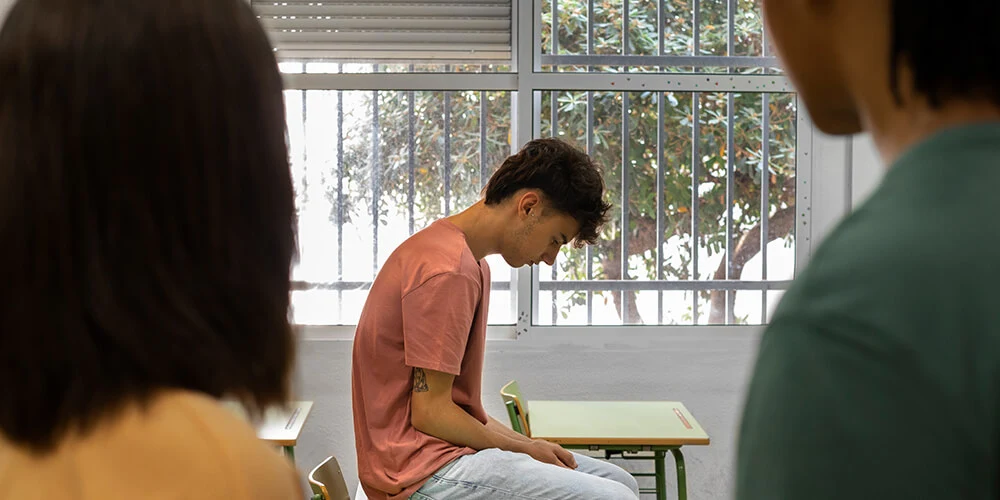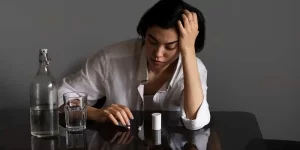Relapse is an unfortunate but common occurrence in the journey of addiction recovery.
However, it is essential to understand that relapse does not mean failure but rather a setback on the path to sobriety.
The first and most crucial step to take after a relapse is to seek immediate assistance from a De Addiction Center in Gurgaon.
Therefore, it is important to be aware of the importance of seeking help after relapse, the steps one should take to restart his/her recovery journey, and the role of De-Addiction Treatment Centers in Gurgaon in helping individuals overcome addiction.
Mentioned below are the key steps that one should take in case of relapse:
Acknowledge the Relapse
The first and foremost step that one needs to take after a relapse is to acknowledge it.
Denial is a common response, but it is crucial to be honest with yourself. Admitting to the relapse is the starting point for any successful recovery process.
Dealing with the shame and guilt that often accompanies relapse is a crucial part of this step.
Reach Out to a De-Addiction Treatment Center in Gurgaon
As soon as you recognize your relapse, it is imperative to reach out for professional help.
A De-Addiction Treatment Center in Gurgaon is equipped with the expertise, resources, and a supportive environment to assist you in getting back on track with your recovery journey.
De-Addiction Treatment Centers in Gurgaon are staffed with experienced healthcare professionals who specialize in addiction recovery.
They offer various treatment modalities and can tailor a plan that suits your unique needs and circumstances.
Whether it is a drug addiction or alcohol dependency, they have the tools and knowledge to guide you toward sobriety.
Reevaluate Your Treatment Plan
Your De-Addiction Treatment Center in Gurgaon will assist you in reevaluating and adjusting your treatment plan.
This may involve exploring new therapy methods, medication options, or support groups.
The key is to identify the underlying causes of the relapse and work on strategies to prevent it from happening again.
Open Up About the Relapse
One of the hardest but most important things to do after a relapse is to open up and communicate about it. Speak with your counselor, therapist, or support group.
Share your feelings and thoughts about the relapse. Bottling up your emotions can lead to further problems and hinder your recovery.
By discussing your relapse with those who understand and support you, you can start to heal and move forward.
Reflect and Learn from the Relapse
Relapses can be learning opportunities. It is essential to reflect on what triggered the relapse and what you can do differently in the future.
Were there specific stressors, emotions, or situations that contributed to your relapse? Identifying these triggers can help you build coping strategies for the future.
Reestablish a Support System
Addiction recovery is often more successful when you have a robust support system in place.
After a relapse, it is essential to reconnect with your support network. This might include friends, family, or support groups.
They can provide the encouragement and guidance you need during this challenging time.
Develop a Relapse Prevention Plan
Working closely with your De-Addiction Treatment Center in Gurgaon, you should create a relapse prevention plan. This plan outlines strategies and coping mechanisms to help you avoid relapse in the future. It can include:
- Identifying high-risk situations and avoiding them.
- Building healthy routines and habits.
- Practicing mindfulness and stress management techniques.
- Building and maintaining a strong support network.
- Setting realistic goals and celebrating milestones.
Stay Committed to Your Recovery
Relapses are not uncommon on the path to recovery.
What’s essential is to stay committed and not give up. Remember that recovery is a journey with ups and downs, and setbacks are a part of it.
By staying committed to your treatment plan and believing in your ability to overcome addiction, you can achieve lasting sobriety.
Self-Care and Wellness
Recovery is not only about abstaining from substances but also about improving your overall well-being.
After a relapse, it is crucial to focus on self-care and wellness. This includes:
- Eating a balanced diet to support physical health.
- Regular exercise promotes mental and physical well-being.
- Engaging in activities that bring joy and relaxation.
- Prioritizing sleep and rest for better emotional stability.
- Seeking therapy or counseling to address any co-occurring mental health issues.
Monitor Your Progress
Keep track of your progress and be aware of your triggers and vulnerabilities.
Regularly check in with your De-Addiction Treatment Center in Gurgaon to assess your recovery and make any necessary adjustments to your treatment plan.
Consistent monitoring and self-awareness are vital for maintaining sobriety.
The Role of De-Addiction Treatment Centers in Gurgaon
De-Addiction Treatment Centers play a significant role in helping individuals overcome addiction.
Gurgaon, a rapidly growing city in India, is home to several reputable centers that provide comprehensive addiction treatment services. These centers offer the following advantages:
Expertise
De-Addiction Treatment Centers in Gurgaon are staffed with experienced medical professionals, therapists, and counselors who specialize in addiction recovery.
They have the knowledge and skills to provide evidence-based treatments tailored to your specific needs.
Personalized Treatment
These centers understand that addiction is a highly individualized problem.
They provide personalized treatment plans that address the unique challenges and triggers you face.
24/7 Support
Many De-Addiction Treatment Centers offer round-the-clock support and care.
This ensures that you can access help when you need it the most.
Medical Detox
Some individuals may require medical detoxification when they decide to quit substances. De-Addiction Treatment Centers in Gurgaon are equipped to provide safe and monitored detoxification services.
Therapy and Counseling
These centers offer a variety of therapy options, including individual therapy, group therapy, and family therapy.
These sessions help individuals explore the root causes of their addiction and develop coping strategies.
Support Groups
De-addiction treatment Centers often organize support groups where individuals can connect with peers facing similar challenges. Sharing experiences and advice within a group can be highly beneficial.
Holistic Approach
Many centers adopt a holistic approach to recovery, addressing not only the physical aspects of addiction but also the mental, emotional, and social aspects.
Seeking Help From De-Addiction Treatment Center
Relapse is a challenging phase in the recovery journey, but it doesn’t have to be the end. Seeking help from a De-Addiction Treatment Center in Gurgaon is the most crucial step to take after a relapse.
These centers provide professional expertise, personalized treatment plans, and a supportive environment that can significantly increase your chances of a successful recovery.
It is important to remember that recovery is a lifelong process, and setbacks can happen.
What is important is how one responds to them. By acknowledging the relapse, reaching out for help, and taking the steps mentioned in this blog, one can regain control over his/her life and continue on the path to sobriety.
If you or someone you know is struggling with addiction, don’t hesitate to seek help from a De-Addiction Treatment Center in Gurgaon.
Recovery is possible, and there is a supportive community ready to guide you towards a healthier, happier life.
Athena Behavioral Health is one of the leading treatment centers for mental health and addiction.
Backed by an experienced and trained staff, the center offers world-class amenities to its patients and makes sure that each one of them gets personalized care and attention.
If this sounds interesting and you would like to know more about our treatment facility, contact us today at 9289086193 Or drop us an email at info@athenabhs.com and we will get back to you shortly.
Read More:
Role of Family and Friends in Mental Health
Coping Strategies For Mental Health Issues
Role of a Psychiatric Residential Treatment Facility for Adults
Understanding PTSD: Causes, Symptoms, and Coping Strategies






